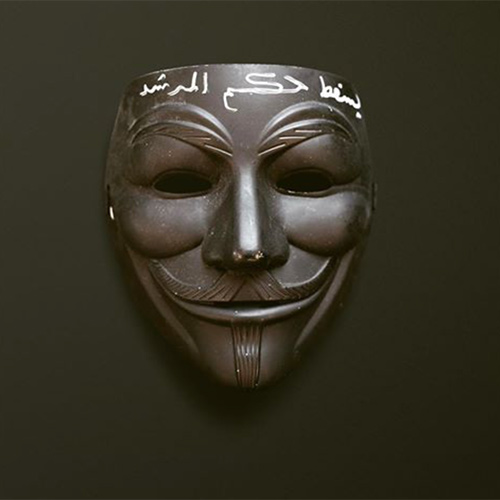Eating Each Other
On the dynamics of (re)appropriation

24.03 — 01.07.2018
Exhibition at Extra City Kunsthal, Antwerp
www.extracitykunsthal.org
Opening
23.03.2018
With performances by Pieterjan Ginckels and Amanda Piña
Performance Weekend
20.04 — 21.04.2018
With performances by Arkadi Zaides, Ogutu Muraya, Oliver Zahn & Julian Warner and Jaha Koo
Group exhibition and public program
Curated by Michiel Vandevelde
With contributions by Linah Dalifa, Pieterjan Ginckels, Hamza Halloubi, Ermias Kifleyesus, Jaha Koo, Mashid Mohadjerin, Radouan Mriziga, Ogutu Muraya, Amanda Piña, Aneta Rostkowska & Jakub Woynarowski, Myriam Van Imschoot, Arkadi Zaides, Oliver Zahn & Julian Warner
Many Western-European cities have become melting pots of different minority cultures. In 2018, Antwerp will for the first time have more residents with a migrant background than it will have native Belgian residents. This will make it a so-called ‘majority-minority city’, a city in which the majority is made up of a wide range of minorities. As such, the city will no longer be characterised by a distinct ethnic, religious and cultural homogeneity.
In light of this, the significance of the term ‘citizenship’ comes into question. The notion of ‘citizenship’ evokes associations with values such as democracy, rights and freedom of expression and religion. These values are often seen as the result of a long tradition within Western, Euro-American thought. In these post-colonial times, in which Western society is becoming markedly more diverse, to look at ‘citizenship’ from a Western perspective is no longer a valid approach.
For example, in order to become ‘real’ citizens of their adopted country, newcomers are expected to accept ‘Enlightened thinking’ and Western, liberal values, such as openness and freedom. However, ‘openness’ and ‘freedom’ have a limited scope: they are usually the preserve of those who comply with Western norms. Those who deviate from these norms are either ‘swallowed up’ by liberal ideology or rejected and marginalised.
The exhibition and public programme
Eating Each Other looks at the strategy of reappropriation. The project is inspired by the Manifesto Antropófago (
Cannibalist Manifesto) written by Brazilian poet and theorist Oswald de Andrade in 1928. In this poetic text, de Andrade proposes to cannibalise a dominant culture by eating it, digesting it and excreting it in an entirely new form.
This reappropriation enables people to create a space that they recognise as their own. New patterns of thought and behaviour are blended with own knowledge, customs and rituals. This potentially serves as a means of relieving powerlessness with respect to dominant structures: the possibility is created to absorb, appropriate and change them.
Processes of reappropriation reveal an interesting power dynamic. They are simultaneously a tool of domination and a means of resisting domination. It is this dynamic that
Eating Each Other seeks to reflect. The ‘cannibalistic’ process is presented through artworks that themselves are proposals for reappropriation, as well as through groups of works that mutually reappropriate in various ways.
The question remains: who is eating and who is eaten?
 2012 — 2021
2012 — 2021
 2009 — 2012
2009 — 2012
 2005 — 2009
2005 — 2009
